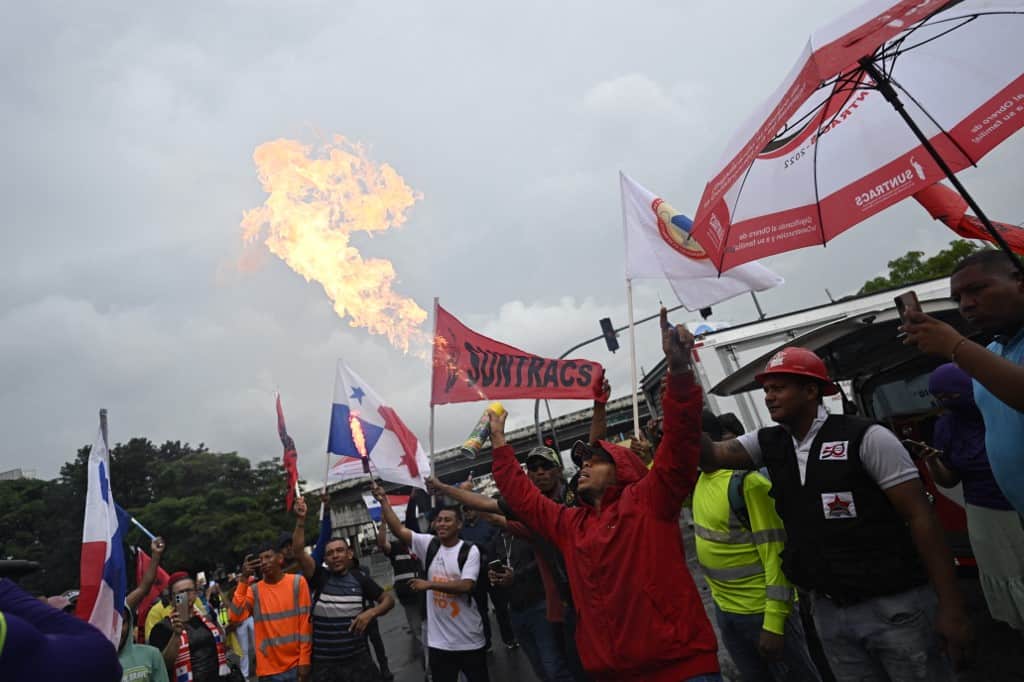Panama’s President, Laurentino Cortizo, approved on Friday, amid protests, a new contract with the Canadian company First Quantum Minerals for the operation in the country of the largest mine in Central America.
Cortizo sanctioned the bill approved hours earlier by the National Assembly of Deputies with 44 votes in favor, 5 against and 2 abstentions, as published in Panama’s Official Gazette, where the document can be seen with the president’s signature.
The legislators gave the green light to a contract that includes minimum annual revenues of $375 million for the Panamanian State, ten times more than the previous agreement.
In addition, the Canadian company is committed to other million dollar investments in the communities near the mine, located on the Caribbean coast, 240 km by road from the Panamanian capital.
“This is about defending national interests, ensuring that we would receive greater and better benefits based on what we had in the 1997 contract and above all the protection of the jobs of thousands and thousands of Panamanians,” said the Minister of Commerce and Industries, Federico Alfaro.
The approval came amid protests against a contract that allows the mining company to operate in Panama for 20 years, extendable by another 20 years. Access routes to Panama City were intermittently blocked on Friday, with burning tires and marches.
The police used tear gas to disperse demonstrators who, under a relentless rain, approached the premises of the Assembly, protected by fences and heavily guarded by agents.
The protesters, some carrying Panamanian flags and banners against mining, shouted anti-government slogans. The day before, protesters clashed with police at the site with stones, blunt objects and fireworks.
300,000 tons
The mining company and the Panamanian government reached an agreement this year to sign a new concession contract, after the Supreme Court declared the original exploitation contract unconstitutional in 2017.
Since February 2019, the mine has been producing some 300,000 tons of copper concentrate per year and employs more than 8,000 people.
The company has invested more than $10 billion in Panama and contributes 4% of GDP to the Panamanian economy. Its shipments account for 75% of the country’s exports.
The Panamanian government says that with the contributions from the mine it will be able to inject resources into the public pension fund and improve the monthly payments of the lowest pensions.
“This bill is beneficial for the country, not only for its inhabitants but also for its international image, this is the largest private investment in the history of Panama,” said ruling party deputy Roberto Ábrego.
Surrendering sovereignty
However, there are sectors that oppose it because they consider that the contract is “unconstitutional” and the contributions of the company to the State are insufficient, in addition to posing a threat to the environment.
“This is a disgrace,” former president and presidential candidate for the 2024 elections, Martín Torrijos, said in a video. “They will carry this historic mistake on their conscience, which will impact this and future generations,” he added.
“There is clearly a surrender of national sovereignty there” in the areas where the mine operates, Saúl Méndez, general secretary of Suntracs, the largest Panamanian union, said.
In addition, “the environmental damage is devastating, open pit mining is one of the most harmful,” he added. The Archbishop of Panama, José Domingo Ulloa, and several Catholic bishops have also publicly expressed their rejection of the contract.
“Traitors, let’s take to the streets to show them they don’t own the country,” presidential candidate Ricardo Lombana wrote on his X (formerly Twitter) account.






